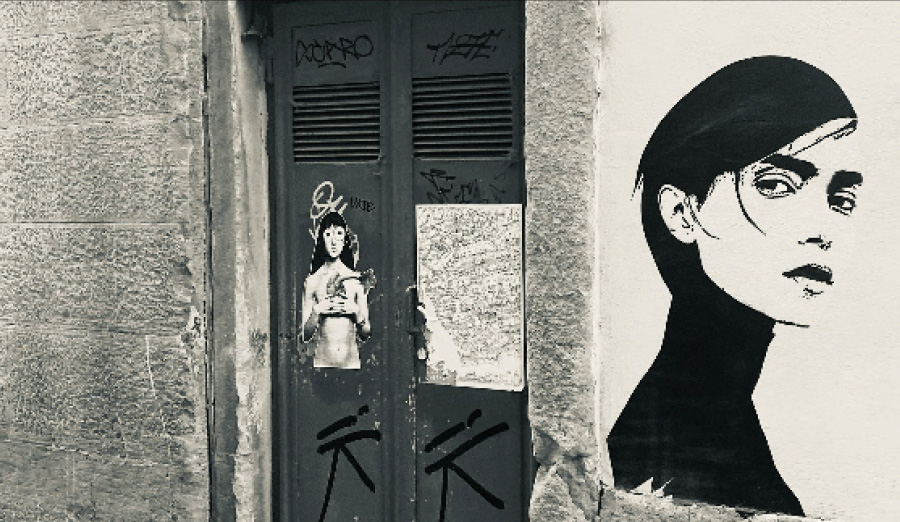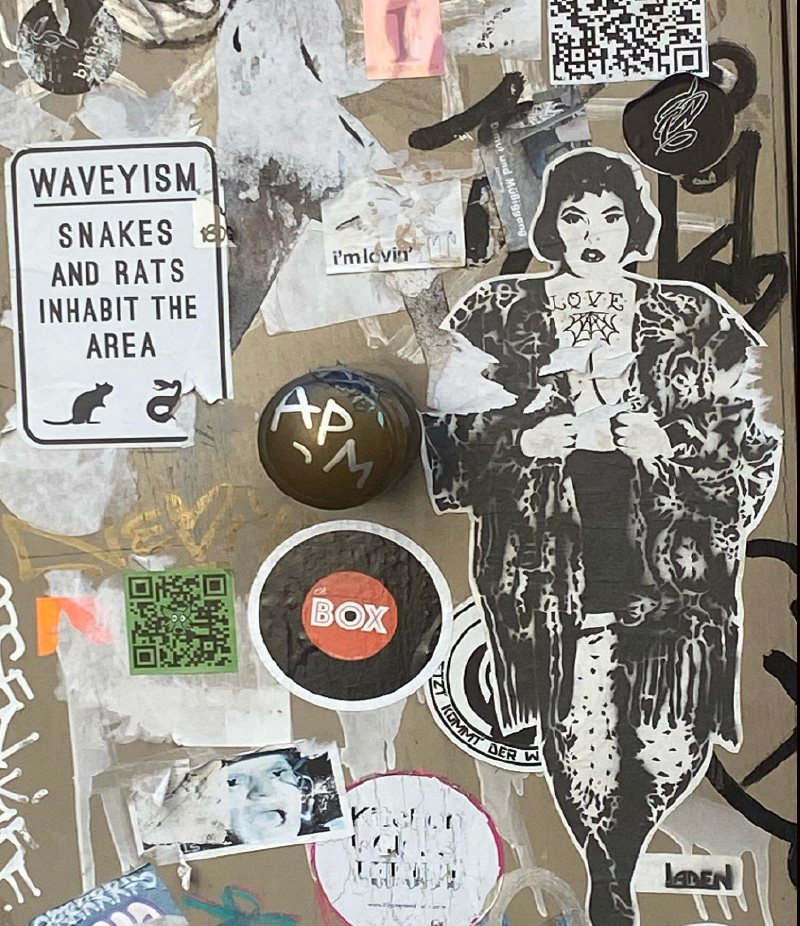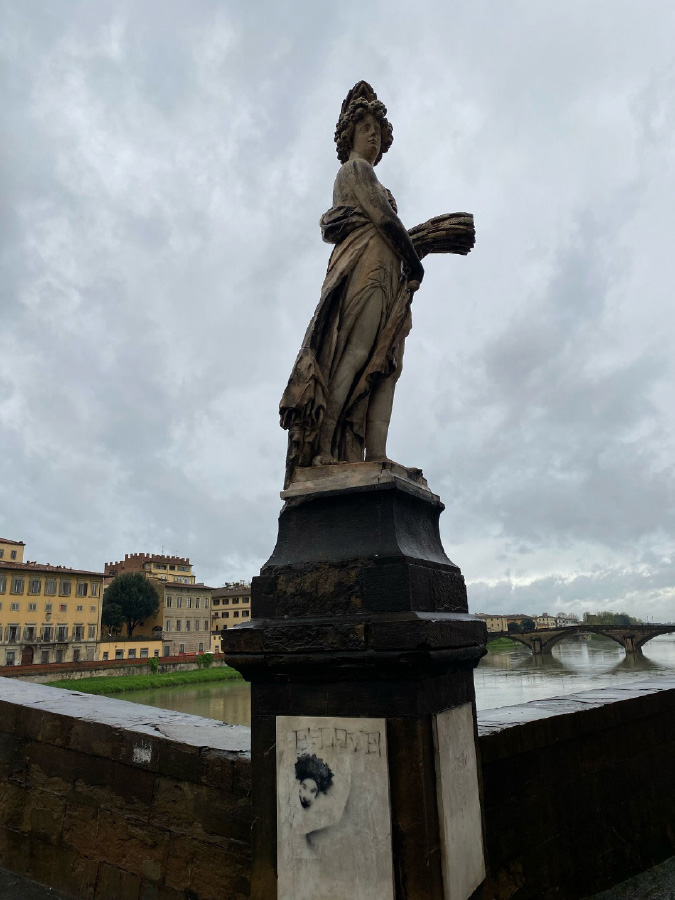Grit and
Captured in Florence, this work channels the ghost of Pop Art without the gloss of commercialism. The stark silhouettes and shapes also evoke the chiaroscuro of Caravaggio and the emotional ambiguity of modern discontent. A fragmented world swirls around tags, posters, time worn stone--but like the woman in the first image the truth remains intact, unblinking.

Wander off the polished piazzas of Santa Trinit--and you’ll find a Florence that’s unapologetically alive--where Renaissance stone gives way to layered wheat-pastes of pin-up muses, pop-culture homages and sly Medici cartouches reimagined in spray paint. Here, a stenciled dame with “LOVE" spider-web chest sits beside a tongue-in-cheek “Dog Is God" poster, while bold murals--bear-faced deities and streetwise youths--pop against ochre façades. It’s a collision of grit and glamour, a conversation between centuries: the city’s grand past whispering through timeworn marble, even as every cracked shutter and cobblestone tells its own, bravely modern tale.

“I don’t paint walls" I’m painting empathy,--says local stencil-wizard Niko of the “LOVE" dame who’s become her own urban legend. |

Glamour by Lisa Walters

Florence wasn’t Europe’s very first republic (that honor goes to the earlier maritime communes), but it stands among the first dozen or so medieval city-state republics and arguably the most perfected of them in its day. Its legacy of civic participation and institutional checks still echoes in modern republican ideals.